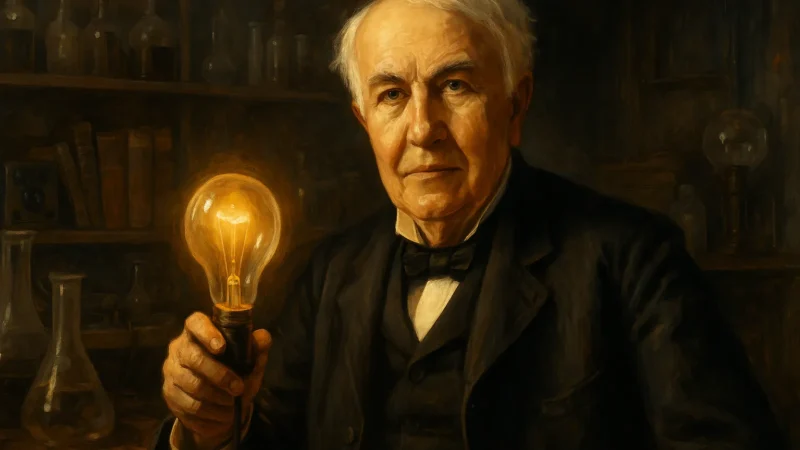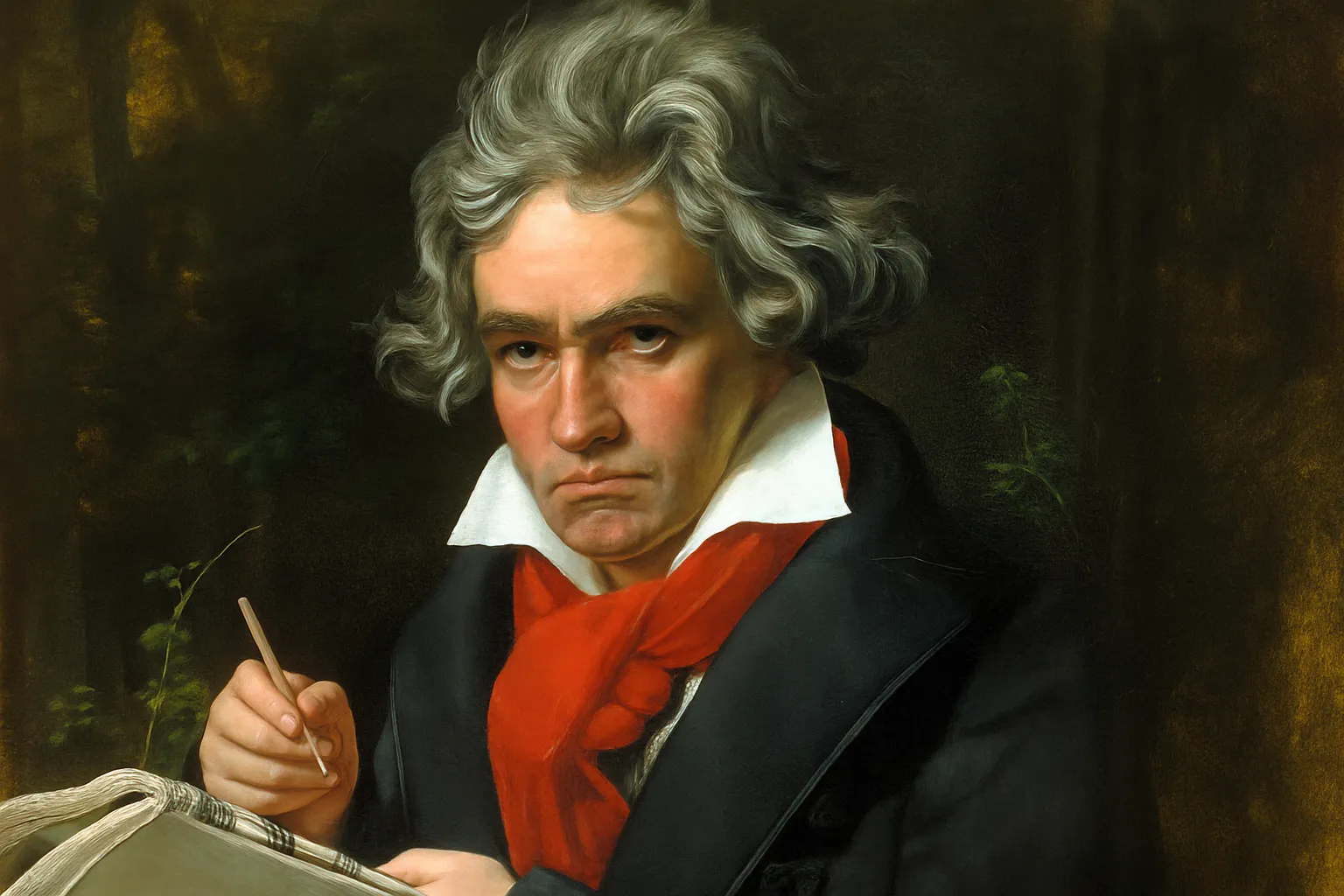Biography of Karl Marx: The man who shook the foundations of capitalism
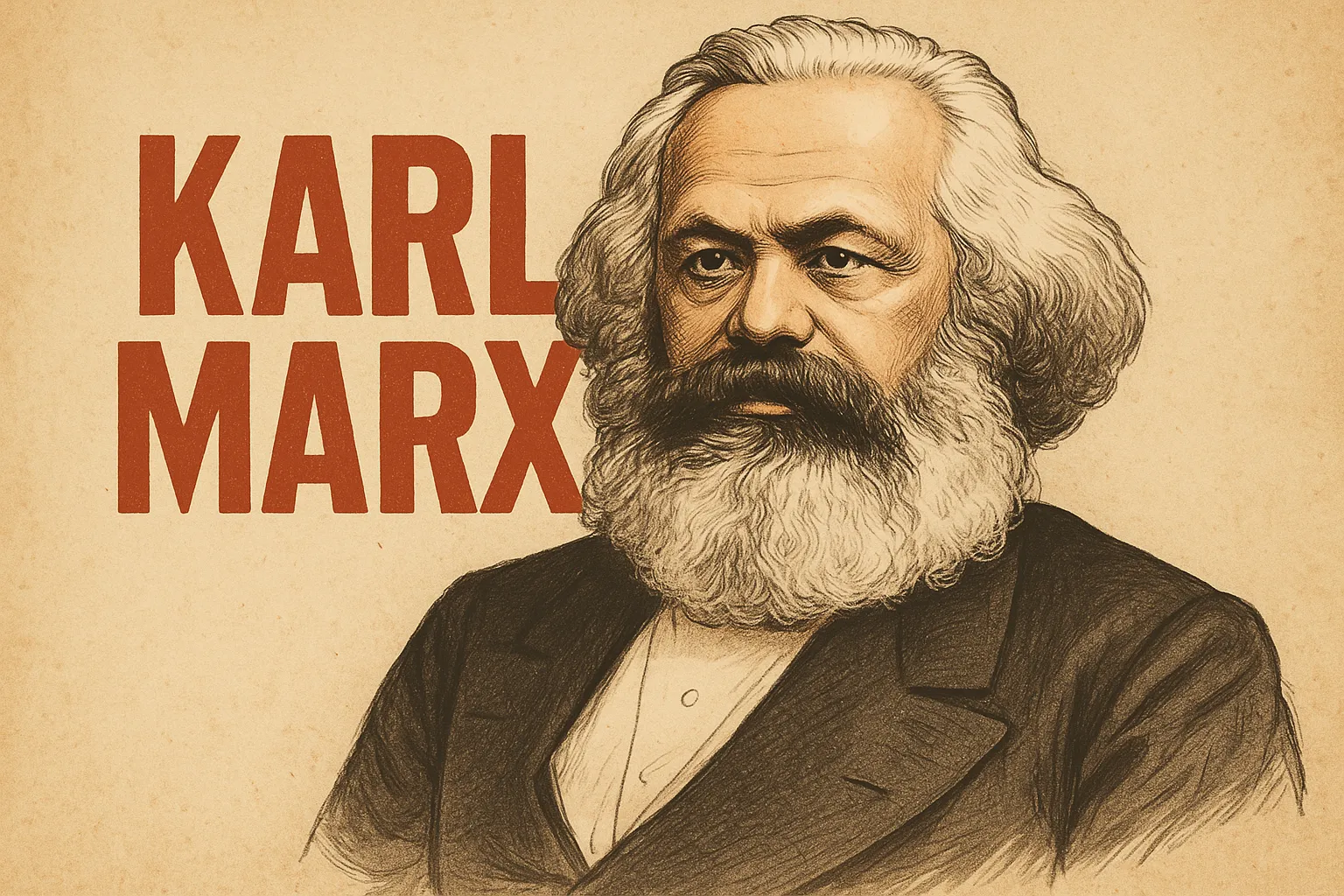
To talk about Karl Marx is to discuss one of the most influential—and controversial—thinkers of the last two centuries. Philosopher, economist, sociologist, journalist, and revolutionary, Marx didn’t just write theory: he planted ideas that inspired movements, revolutions, and entire states. His legacy may be divisive, but it is undeniably significant. For some, he was a visionary of social justice; for others, the ideologue behind totalitarian regimes. Regardless of sympathies or criticisms, understanding Marx is essential to understanding the modern world.
A restless bourgeois youth
Karl Heinrich Marx was born on May 5, 1818, in Trier, a small German city under Prussian rule. Contrary to what many may assume, he was not born into poverty but into a well-off middle-class family. His father, Heinrich Marx, was a lawyer of Jewish descent who converted to Christianity to practice law in Prussia, where Jews were barred from government positions.
From a young age, Marx displayed exceptional intelligence and a rebellious intellectual nature that led him to distance himself from organized religion. At age 17, he entered the University of Bonn and later transferred to the University of Berlin, where he immersed himself in Hegelian philosophy—though he would later become one of its fiercest critics.
From Hegel to historical materialism
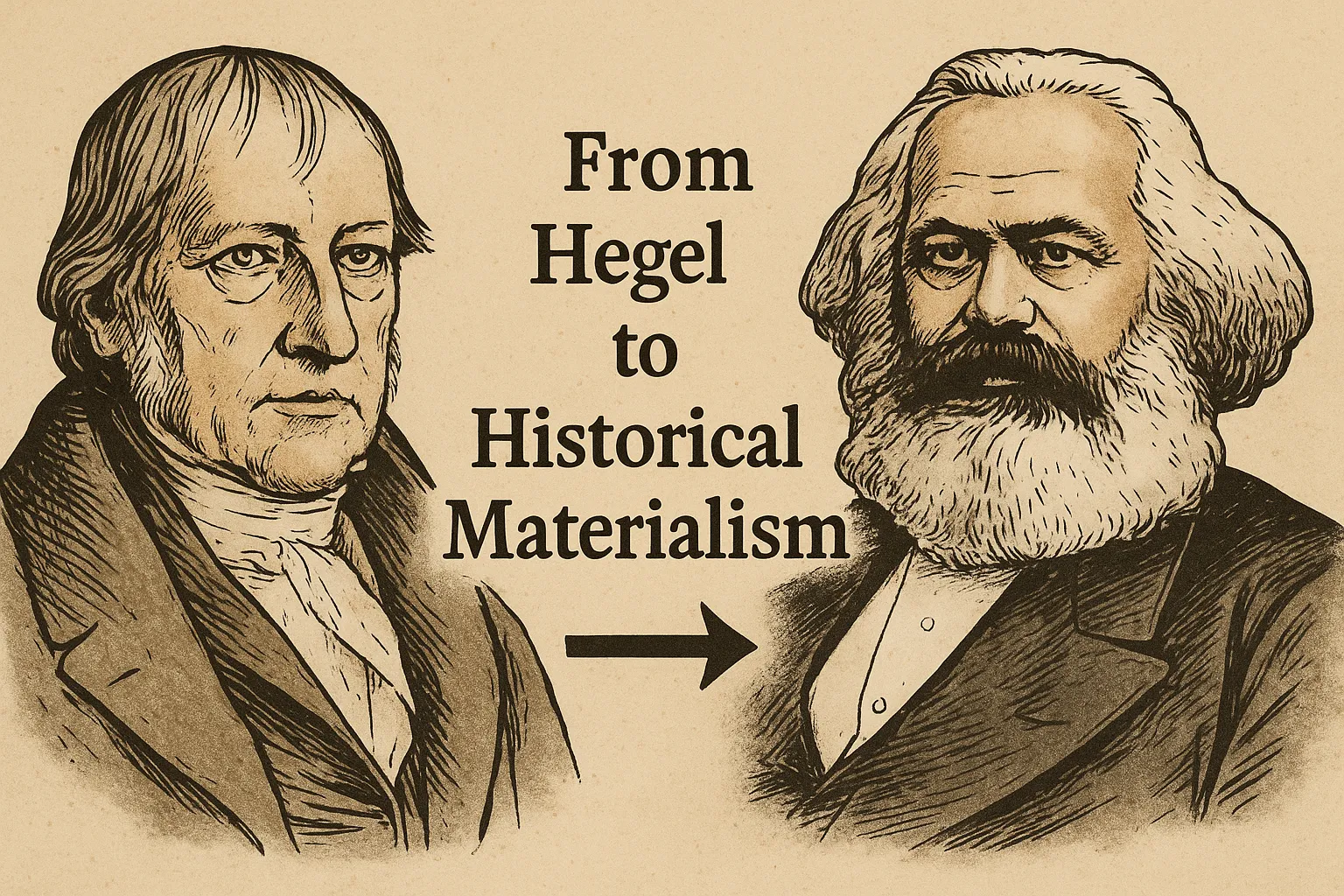
During his university years, Marx absorbed the work of Georg Wilhelm Friedrich Hegel, whose idealist philosophy dominated German academia at the time. However, Marx found Hegel’s notion that history advanced through the Absolute Spirit to be insufficient.
That was when he met Friedrich Engels, the son of an industrialist and, paradoxically, one of the first critics of capitalism from within. Engels would become his closest friend and collaborator. Together, they developed what Marx would call historical materialism: the idea that human history is fundamentally a struggle between classes, driven by material and economic interests, not abstract ideas.
Exile and the struggle against censorship
In 19th-century Germany, speaking of revolution was a dangerous act. Marx attempted to work as a journalist, but his radical ideas quickly drew attention. He was expelled from Prussia, then from France, and finally settled in London, where he would spend most of his life in poverty, surviving largely on financial support from Engels.
During these years, Marx produced some of his most influential works while enduring personal tragedies: several of his children died from illnesses linked to their precarious living conditions. Still, he never put down his pen or gave up his cause.
The Communist Manifesto: an ink-soaked bomb
In 1848, Marx and Engels published the “Communist Manifesto”, a brief yet explosive text. “A specter is haunting Europe—the specter of communism,” is one of the most famous political lines in history.
The manifesto outlined the Marxist worldview: history as a continuous conflict between oppressors and the oppressed, and the urgent need for the proletariat—the working class—to rise against the bourgeoisie and establish a classless society. It was a direct call to revolution, written in passionate and combative language. Though its immediate impact was limited, its influence would grow exponentially in the years to come.
The ultimate critique of capitalism
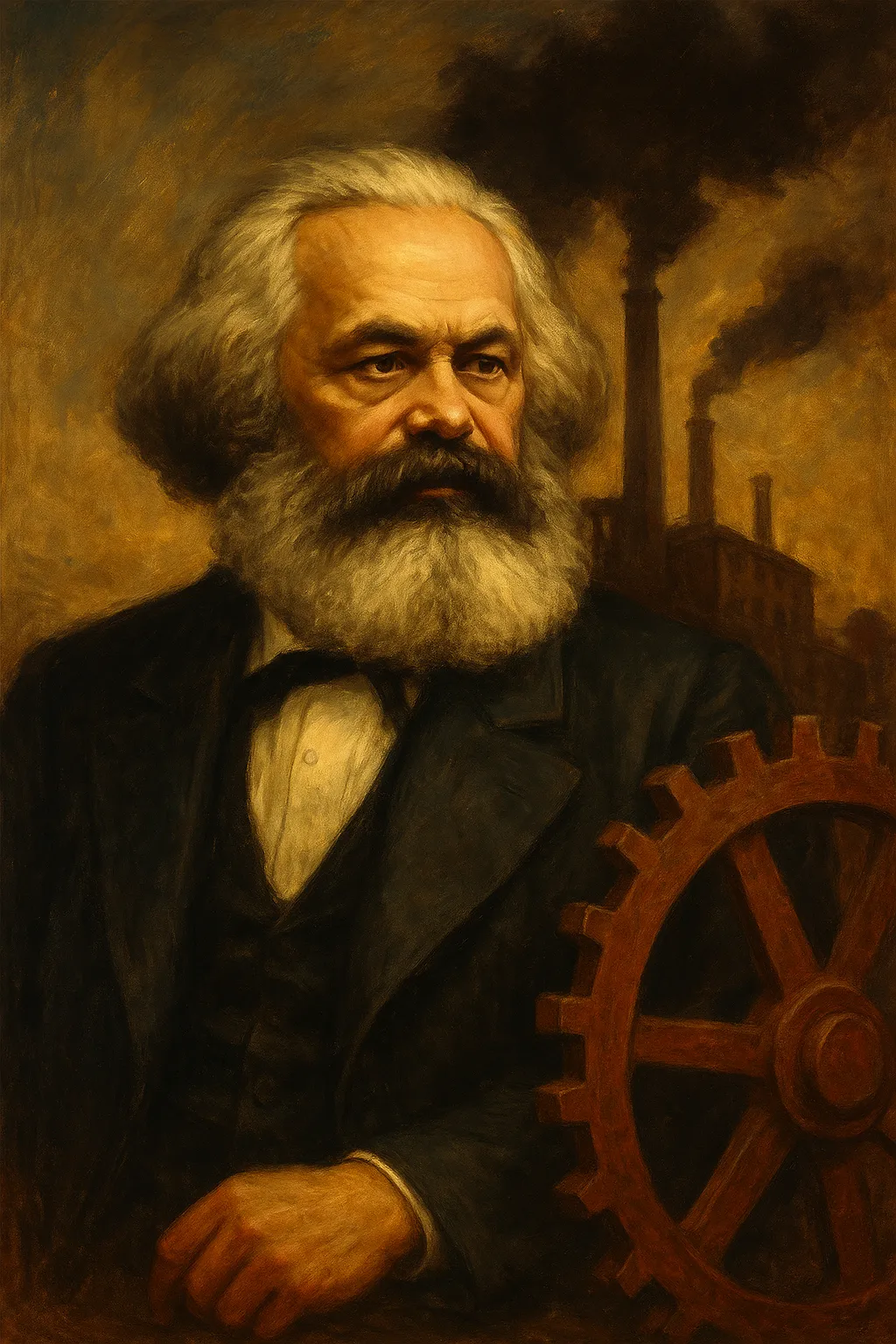
Marx’s magnum opus, however, was undoubtedly “Capital” (Das Kapital), published in 1867. This was not a political pamphlet but a profound, dense, and systematic critique of how capitalism operates.
In it, Marx analyzed how capital reproduces itself, how labor generates surplus value (unpaid value created by workers), and how this dynamic inevitably leads to recurring crises and increasing wealth concentration.
Although it remains a challenging read—even for economists—its influence has been vast. Even those who disagree with Marx’s conclusions recognize his importance as a critic of the capitalist system.
Tragedy, love, and sacrifice
Behind the radical theorist was a man of flesh and blood. Marx married Jenny von Westphalen, a woman from an aristocratic family who gave up her comfortable life to follow Marx into exile, poverty, and political struggle.
They had seven children, but only three survived into adulthood. The family lived in harsh conditions in London, often without heating, without enough food, and constantly in debt. Yet Jenny remained by his side until her death in 1881.
This human dimension is often overlooked in ideological analyses, but it’s crucial to understanding the passion with which Marx defended his ideas: he lived and suffered them personally.
Was Marx a prophet or profoundly mistaken?
Marx’s work had a massive global impact, but it has also been subject to severe criticism. Many point to his failed predictions, such as the inevitable collapse of capitalism or the global unification of workers. In reality, many workers improved their conditions without needing a revolution.
Others criticize the political outcomes of his legacy. In his name, communist regimes such as the Soviet Union, China, and North Korea were established—regimes that devolved into repressive dictatorships and mass violence. However, Marx’s defenders argue that these states deviated from his original vision, which envisioned a transition toward a stateless society—not totalitarian control.
What remains of Marx in the 21st century?
While communism as a state model has lost much of its appeal since the fall of the Berlin Wall, Marx’s thought remains alive. Today more than ever, concepts such as labor exploitation, inequality, alienation, and capital concentration are central to global debates.
Even in capitalist societies, many social movements and academic circles use Marxist theory to analyze contemporary issues like automation, platform capitalism (Uber, Amazon), and the climate crisis.
Moreover, his writings remain among the most cited in sociology, economics, and political philosophy. Far from being forgotten, Marx continues to be reinterpreted in light of new challenges.
Understanding his legacy without fanaticism
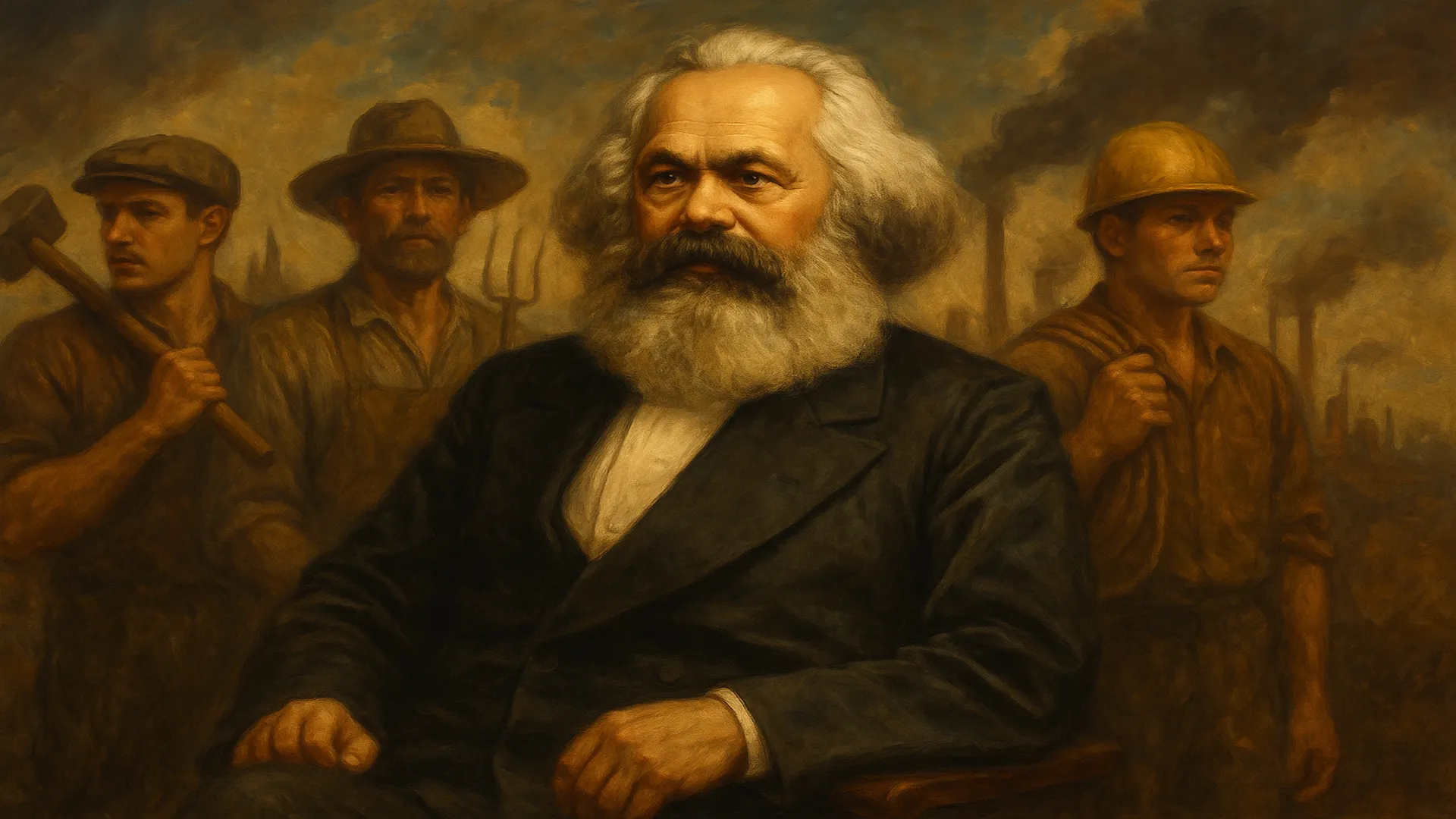
The truth is that Marx is not merely a figure to defend or attack. He is, above all, a complex thinker whose work deserves to be read without ideological simplifications.
He was neither an infallible prophet nor the villain responsible for the tragedies of the 20th century. He was a brilliant intellectual, deeply committed to his time, who analyzed capitalism with a critical and far-reaching lens. His ideas, while debatable, continue to offer powerful tools for rethinking economics, politics, and society.
Iconic quotes by Marx that still resonate
“Philosophers have only interpreted the world, in various ways. The point, however, is to change it.”
“The history of all hitherto existing society is the history of class struggles.”
“Capital is dead labor, which, vampire-like, lives only by sucking living labor.”
These quotes not only encapsulate his thinking but also reflect the passion with which Marx saw his intellectual mission—not as an abstract exercise but as a tool for social transformation.
the fire of a restless mind
Karl Marx died on March 14, 1883, in a cold and rainy London, virtually unknown to the general public. His grave in Highgate Cemetery bears an inscription that captures his essence:
“The proletarians have nothing to lose but their chains. They have a world to win.”
More than 140 years after his death, that world is still being shaped by ongoing debates about free markets, social justice, and new forms of inequality. And although many of his proposals remain controversial, Marx’s ability to challenge power and expose systemic injustices is as relevant today as it was when he wrote his first manifesto.

